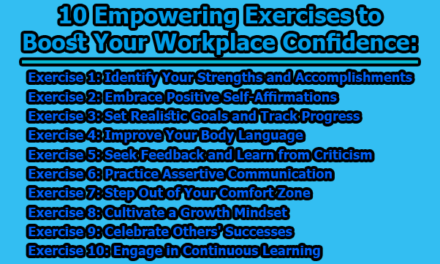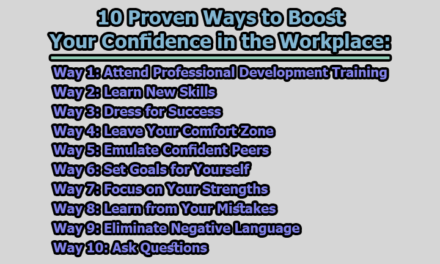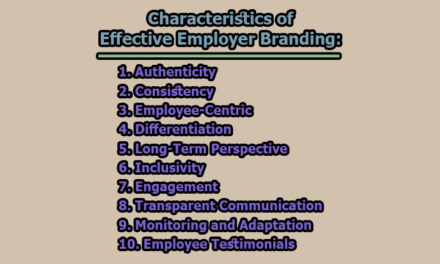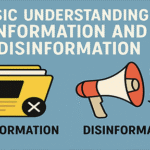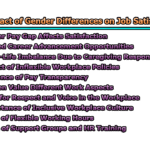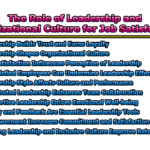Different Career Paths Available to Writers:
In the ever-evolving landscape of the written word, being a writer is akin to being an artist constantly honing their craft. The contemporary world recognizes authors as professionals deserving of respect, much like individuals in other esteemed vocations. As the number of aspiring writers burgeons, the opportunities for them have also expanded significantly. Unlike traditional perceptions, a degree in English is not the sole gateway to becoming a successful writer. Imagination and writing prowess, rather than formal education, are often the key ingredients to success. Identifying and nurturing one’s talent is paramount in the world of writing. Every writing occupation demands commitment, but these roles, in particular, require an unwavering dedication to transforming thoughts into captivating narratives. In this article, we will delve into different career paths available to writers, highlighting the vast array of possibilities that cater to different skill sets and interests.
1. Book Editor (Shaping Literary Masterpieces): Book editors play a crucial role in the publishing industry. They collaborate with authors to refine manuscripts, ensuring coherence, clarity, and adherence to the publishing standards. An editor’s keen eye can transform a good book into a literary masterpiece, making this role indispensable in the world of literature.
2. Freelancer (Embracing Independence in Writing): The gig economy has opened up a plethora of opportunities for freelance writers. Freelancers can choose from a variety of projects, ranging from articles and blog posts to marketing copy and creative content. Freelancing offers flexibility and independence, allowing writers to work on their own terms and manage their schedules efficiently.
3. Novelist (Crafting Compelling Narratives): Novelists have the unique ability to create entire worlds with their words. They weave intricate plots, develop characters, and immerse readers in captivating stories. While it requires considerable time and dedication, the satisfaction of seeing one’s novel on bookshelves is a rewarding experience for any writer.
4. Screenwriter (Bringing Stories to Life on the Big Screen): For those captivated by the visual medium, screenwriting is an enticing option. Screenwriters craft scripts for films or television shows, translating their narratives into engaging visual experiences. This field demands creativity, adaptability, and a deep understanding of storytelling techniques specific to the screen.
5. Journalist (Reporting the Truth): Journalism is a dynamic field that allows writers to inform, educate, and influence public opinion. Journalists investigate and report news stories across various platforms, be it print, digital, or broadcast. This profession demands a commitment to truth and accuracy, along with the ability to meet tight deadlines.
6. Blogger (Sharing Perspectives Online): Blogging has become a powerful medium for self-expression and information dissemination. Bloggers create content on diverse topics, from personal experiences to niche interests, attracting readers through their unique perspectives. Successful bloggers can monetize their platforms through advertisements, sponsorships, and affiliate marketing.
7. Poet (Mastering the Art of Versification): Poetry is a form of literary expression that relies on rhythm, imagery, and emotion. Poets create works that resonate on a deep, emotional level, using language in a way that transcends traditional prose. While it may not be as mainstream as other writing careers, poetry holds a special place for those who appreciate the beauty of language.
8. Copy Editor (Polishing Language to Perfection): Copy editors are meticulous professionals who ensure written content is error-free and adheres to grammatical and stylistic conventions. Their keen attention to detail is essential in maintaining the quality and credibility of written material across various industries.
9. Medical Writing (Bridging Medicine and Communication): Medical writing involves translating complex scientific information into clear, accessible language for various audiences. Medical writers create documents such as research papers, regulatory documents, and patient education materials, contributing to the communication between the medical community and the public.
10. Infopreneur (Monetizing Information): Infopreneurs leverage their expertise to create and sell informational products. This could include e-books, online courses, webinars, and other forms of content. With the rise of online platforms, infopreneurs can build successful businesses by sharing valuable knowledge with a global audience.
11. Script Doctor (Fine-Tuning Narratives for Success): A script doctor, also known as a script consultant, helps improve the quality of film or television scripts. They provide feedback on plot structure, character development, and dialogue, contributing to the overall success of the project. Script doctors play a crucial role in refining scripts before they go into production.
12. Creative Consultant (Inspiring Innovation): Creative consultants offer their expertise to businesses and organizations seeking innovative solutions. They bring a fresh perspective to problem-solving, utilizing their creative thinking and communication skills to enhance products, services, or organizational strategies.
13. Book Coach (Guiding Aspiring Authors): Book coaches mentor and guide aspiring authors through the writing and publishing process. They provide constructive feedback, offer writing techniques, and assist with navigating the intricacies of the publishing industry. Book coaching is a fulfilling way for experienced writers to help others bring their stories to life.
14. Editor (Shaping Content Across Various Industries): Editors work in diverse fields, from journalism to corporate communications. They review and refine written content, ensuring clarity, coherence, and adherence to style guides. Editors play a crucial role in maintaining the quality of written material in both traditional and digital media.
15. Translator (Bridging Language Barriers): Translators are language experts who facilitate communication between people who speak different languages. They work with written texts, translating content while preserving its meaning and cultural nuances. Translators play a vital role in making information accessible to a global audience.
16. Content Marketer (Strategically Crafting Engaging Material): Content marketers create valuable and relevant content to attract and engage target audiences. This role involves understanding marketing strategies, SEO principles, and consumer behavior to produce content that aligns with business goals and drives audience interaction.
17. Grant Writer (Securing Funding Through Persuasive Proposals): Grant writers specialize in preparing persuasive proposals to secure funding for non-profit organizations, research projects, or community initiatives. This role requires excellent writing skills to articulate project goals, outcomes, and the potential impact on the community or organization.
18. Technical Writer (Simplifying Complex Information): Technical writers translate complex technical information into clear, accessible language for non-expert audiences. They create manuals, guides, and documentation for products, software, and processes, contributing to user understanding and enhancing the overall user experience.
19. Speechwriter (Crafting Compelling Verbal Narratives): Speechwriters work behind the scenes to create impactful speeches for public figures, politicians, and executives. This role involves understanding the speaker’s voice, message, and audience to craft compelling narratives that effectively convey ideas and resonate with listeners.
20. Travel Writer (Exploring the World Through Words): Travel writers have the enviable task of documenting their journeys and experiences, sharing them with readers through articles, blogs, or books. This profession combines a passion for exploration with the ability to paint vivid pictures through words, allowing readers to vicariously travel to distant lands.
21. Copywriter (Crafting Persuasive Messages): Copywriters specialize in creating persuasive and compelling content for advertising and marketing purposes. They use language strategically to captivate audiences and drive action, whether it’s making a purchase or subscribing to a service. Copywriting demands creativity, market awareness, and an understanding of consumer psychology.
22. Film Critic (Analyzing and Evaluating Cinematic Works): Film critics assess and critique films, providing insights into the artistic and technical aspects of filmmaking. They analyze performances, cinematography, storytelling, and overall impact. Film criticism contributes to the cultural discourse surrounding cinema and helps audiences make informed viewing choices.
23. Proofreader (Ensuring Accuracy in the Final Product): Proofreaders meticulously review written content for grammatical errors, typos, and formatting issues. Their role is crucial in maintaining the professionalism and accuracy of written material before it is published or presented. Proofreading is a meticulous and detail-oriented occupation that demands a keen eye for errors.
24. Public Relations Specialist (Shaping Public Perception): Public relations (PR) specialists use written communication to manage the image and reputation of individuals, companies, or organizations. They craft press releases, develop communication strategies, and engage with media to influence public perception positively.
In conclusion, in the words of Gianfranco Lovino, “Man has two great gifts: ‘words’ to give sound to thoughts, and ‘writing’ to give thoughts meaning forever.” The diverse array of occupations available to writers highlights the profound impact of words in our society. Whether it’s through novels, blogs, scripts, or journalistic endeavors, writers have the power to shape perspectives, evoke emotions, and leave a lasting legacy.
For aspiring writers, the opportunities are vast and varied. The evolving landscape of the writing profession, coupled with the advent of online platforms, has made it easier than ever for writers to pursue their passions and turn their skills into fulfilling careers. Whether you choose to be a freelancer, a novelist, a blogger, or explore any other avenue, the key lies in identifying your talent, honing your craft, and embracing the world of words with dedication and enthusiasm. With the right mindset and continuous learning, the journey of a writer can be a fulfilling and rewarding one.

Assistant Teacher at Zinzira Pir Mohammad Pilot School and College


